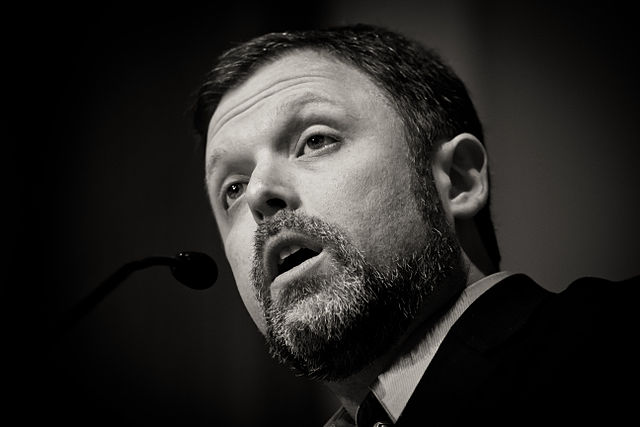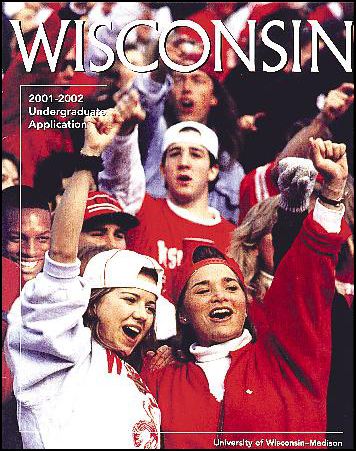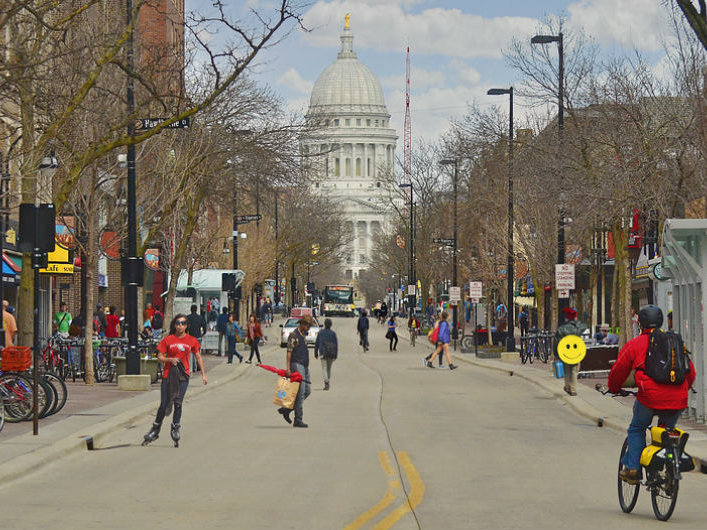The opinions expressed in this piece do not necessarily reflect the opinions of OnMilwaukee.com, its advertisers or editorial staff.
Madison, Minneapolis, Austin, Portland, San Francisco.
These are America’s most progressive, forward-thinking, open-minded and social-justice-focused cities. They also have the worst racial disparities in the nation and some of the worst racial segregation.
It just doesn’t make sense on paper. It’s not supposed to be this way. But the statistics don’t lie. Rampant black and brown poverty within blocks of white affluence. Eye-popping racial disparity numbers in employment, education, health, housing and more. Black and brown people of all socioeconomic backgrounds feeling uncomfortable and unwanted in progressive cities that are often segregated as bad as Jim Crow Deep South. In the end, there is very little "coexisting" in the land of "Coexist" bumper stickers.
Tim Wise, one of the nation’s most prominent anti-racist essayists, educators, activists and pioneers, tells Madison365 about a conversation over coffee he had with an African American friend in the San Francisco Bay Area who explained in very stark detail why San Francisco was the most racist place he had ever lived in.
"This man was in his 50s and had lived in Birmingham, Alabama. He’d lived in Dallas. He’d lived in St. Louis. He said that San Francisco to him was the most racist place he had ever lived," Wise recalls. "As we teased that out, of course, he was talking about what Ralph Ellison talked about in ‘Invisible Man’ … that feeling of being invisible and of people looking right through you and not really being seen. In some ways, to have that happen in a place like San Francisco has to be more weighty … to have a reputation of being X, but you’re really Y.
"At least if you’re in Birmingham, you know you ain’t X, and you know how to protect yourself and prepare yourself," Wise adds. "This guy was like, ‘It’s amazing living in San Francisco all the crap I experienced that these white liberals just didn’t see at all.’ He ended up moving back to the South, too, because it was so much easier to deal with the overt racism than the covert, colorblind racism that you deal with in liberal cities."

Tim Wise is one of the nation’s most prominent anti-racist essayists, educators, activists and pioneers.
Wise, whom scholar and philosopher Cornel West calls "a vanilla brother in the tradition of (abolitionist) John Brown," says progressive cities need to take a deep look at themselves on issues of race. It’s a populace that is so preocupied with pointing out and condemning racism in more conservative parts of the country, he says, that they completely ignore what is happening in their own progressive backyards. For example:
- Austin is top-10 in the most segregated cities in the United States … described as "a rich Texas town that holds on to its whiteness for dear life." Austin is the only fast-growing United States city losing African Americans.
- In comparison to their white counterparts, black adults in San Francisco are much more likely to be arrested, booked into county jail and convicted, according to a racial and ethnic disparities report.
- Portland shows a persistent disparity between how often whites and blacks are stopped and searched.
- Minneapolis has seen the formation of the some of the nation’s widest racial disparities,and the nation’s worst segregation in a predominantly white area.
- Closer to home in Madison, African Americans in Dane County are 5.5 times more likely to be unemployed than their white neighbors. African American families are six times more likely to be poor with children 13 times more likely to live in poverty than their white classmates. This disparity in child poverty was the largest among any jurisdiction in the United States. Nearly three-quarters of black children in 2011 were poor compared to 5.5 percent of white children. This is just the tip of the iceberg; to read more about Madison racial disparities, click here.
How can this be, in a "unversity town"?
It’s true, some more affluent people reside in this city due to the existence of a large, world-class university. People with more money do create disparities.
Does that explain the exodus of brown and black professionals when they complete their four years at the university because they feel so uncomfortable and unwelcome in this town?
Does that mean that Madison has to be so severely segregated by race?
Does that mean that we have almost zero affordable housing in Madison for people of color forcing Blacks and Latinos to live in separated areas on the fringes of the city where they are disenfranchised economically, socially and politically?
Does having an elite institution mean huge disparities in prosecutions and arrests and incarceration?
Does it explain why African American adults are 10 times more likely to be arrested than their white counterparts – mainly on drug arrests when studies have shown that whites are more likely to abuse drugs than blacks?
Wise says that Madison, like over progressive cities, has been lulled into complacency that pretty much renders the entire city complicit in the segregation and racial disparities they face. What perplexes people the most is that it is simply incompatible with everything the progressive platform represents. Wise believes the problem is that northern progressives came to their politics in other non-racial areas and have trouble seeing racial problems in their day-to-day lives.
"I think that white progressive liberal folks outside of the South almost always got politicized and radicalized around issues other than race," Wise says. "So, if I’m a west coast, midwest, or northeast white liberal, I might be really progressive on the issues that I got politicized around which might have been the ecology, war, schools, health care or LGBT issues. For most white folks, that’s their entry into progressive politics, and race is oftentimes so far down the list of things that they get radicalized around that even for really well-intended people, it’s just a huge blind spot."
Wise has studied this phenomenon and written about it in numerous books and essays. He has produced a DVD titled "On White Privilege: Racism, White Denial & the Costs of Inequality" and a double-CD entitled "The Audacity of Truth: Racism and White Denial in the Age of Obama." Wise contends that it is a different scenario in the South.
"Those of us who are white, progressive and radical in the South – and granted we are a distinct minority of people in the South – almost always came to politics through a racial analysis of some sort because race has always been so central here," says Wise, who lives in Nashville, Tenn. "I’m not saying that’s true for all white progressives down here, but on balance we tend to be a little bit better on race because it’s constantly in the background of our lives."
It’s the problem we’re seeing with Bernie Sanders right now and some of his diehard supporters who come from extremely white enclaves in the northeast.
"Although they implicitly understand the issues, it’s really underneath a ton of stuff," says Wise. "If you’re a senator from Vermont or the mayor of Burlington, you don’t really have to go to bed thinking about race. You don’t have to wake up thinking about race. You don’t have to think about it on a daily basis."
Wise elaborated further on the disconnect in recent writings titled #BlackLivesMatter, Bernie Sanders and the Problem With (Some) White Progressives:
Rather the issue is, are you connected enough to black and brown leadership to actually sit in struggle with them, listen to them, learn from them, and then offer your feedback from a place of solidarity, comradeship and love? Because if the answer to that last question is no, then you shouldn’t be surprised when the black and brown peoples you criticize think you’re full of shit. If they haven’t seen your face in their place, working on the issues that they prioritize as if their lives depended on it – because they do — then why in God’s name should they presume your commitment to the cause? On the other hand, if the answer to the question above were yes, my guess is you wouldn’t be losing your mind about what #BlackLivesMatter folks are doing, even if you had some strategic differences with them. You would take that shit to them, because you would be part of them, or because you actually knew them, and you’d work it the hell out.
And if you don’t know where those circles are, within which you could have those discussions productively, then that is the problem. It isn’t that white folks have to agree with everything black people do. Rather, it is this: until we show ourselves to be folks who are down for the eradication of white supremacy as a primary concern (and not something we’ll get to later, after we address the corporate oligarchy or climate change or Wall Street criminality), then we cannot expect to be taken seriously by those whose ability to put matters of racial justice on the back burner is constrained by this thing we call breathing.
These struggles that progressive cities face around race issues are the reason you see black folks leaving in large numbers for the last 20 years or so moving back to larger Southern cities. Gentrification has forced many blacks out of these cities – many of them have been left isolated, leaving them culturally, economically and socially vulnerable.
"It’s not like they are even moving to Milwaukee, Chicago or New York … they are moving back to Atlanta or Charlotte," Wise says. "They will tell you very clearly that those places are not as progressive as other states. They know that politically they will be dealing with white folks who are far more reactionary. But it’s almost easier is what black folks tell me when we talk about it. I’d rather deal with the foe I know than the one I don’t."
Universities need to play a much bigger role in halting this tremendous people-of-color brain drain if progressive cities want to thrive in the future, Wise says.
"For a lot of people in Madison at UW, it’s the most diverse place that they’ve ever been since they are coming from small towns in Wisconsin and neighboring states, and they are like, ‘Oh, my God, this school is so diverse!’" Wise says. "Black students and other students of color will tell you it’s the least diverse place they have ever seen.
"Part of it is if a community is so embedded with a school and the school is so committed to putting forth a particular image that doesn’t comport with the lived experience of the people who come here or the people in the community that are left out of that experience, then it’s not all shocking that people will leave, transfer schools, go to a different city or just never come there in the first place," he adds.
So, it’s not enough to Photoshop a black guy into a football game and reproduce it on the university literature?

Diallo Shabazz (far left) was photoshopped onto a UW application booklet.
"Yeah, that didn’t help. I do make jokes about that in speeches sometimes," Wise laughs about the 2000 incident in which University of Wisconsin officials added the face of a black student, Diallo Shabazz, to a file photo for the cover of the school’s 2000 application booklet. "They found a guy that hadn’t even been on the campus for two years and inserted him into a football stands where he was clearly not sitting. It’s like, ‘We really love this picture from the Badger game but, damn, there’s no black people. Let’s get some Clipart!’ If that’s your go-to move, then that’s a problem. And I haven’t really seen too much from them to address that problem in a substantive way since then."
But I tell Wise that Madison is going to be different now. Madison has studied the problem. It has analyzed the numbers. It has held forums and panels and pow-wows on race. I tell Wise that we have the resources here. We have wealth. We have passion. We have nothing if we don’t have activism. We have 100,000 people swarming the Capitol when Gov. Walker does something we don’t like. What will it take to put that passion into racial disparities?
"I’m not quite sure what it will take to get good white liberal folks really animated behind racial issues there," Wise says. "The good news is that we are beginning to see nationwide some white involvement because of Black Lives Matter and the police violence issues. There are possible entry points, and we are seeing a few white people make it out of their comfort zones and talk about these issues that maybe they wouldn’t have a couple years ago."
Cities and towns need to commit to doing somethings differently, Wise says, that will take away the option for white folks to continue to ignore racial issues. "We need to implement policies that limit the ability of white people to opt out of this work," says Wise, who was recently part of a panel on "Undoing Racism in the Nation’s Cities" for the National League of Cities at the Washington D.C. Newseum.
"We are going to have to have a lot of conversations about issues like gentrification and housing and inclusionary zoning, but I think that at least now we have a couple of ways of entering into the conversation because of the BLM movement and hopefully that will continue to bear fruit and we will continue to develop emerging cadres of white allies and accomplices in the struggle," Wise adds.
In the meantime, what can Madison do to be that unique city that doesn’t go down the path that every other city has?
"It’s very much about having leadership that’s willing to acknowledge the problems both historically and contemporaneously and naming institutional and systemic and structural racism as one of those issues," Wise says. "We need to talk about ways that we have done things from schools to policing to housing policy to economic development policy that have perpetuated, not necessarily on purpose, racial injustice. That’s going to really require getting as many of the stakeholders in Madison as possible involved in that conversation. It can’t just be the UW. It can’t just be the big employers. It can’t just be the state government. And black folks and people of color are going to need to be very prominent in the conversation to figure out what really needs to be done."
The main problem in Madison and in progressive cities, Wise says, is that people of color don’t really have the autonomy and self-determination that they need to make decisions that affect their lives. "We can have city leaders and mayors and council people make all kinds of pronouncements, but unless the communities themselves actually have a say – here’s what we need and here’s what we’re talking about — it’s not going to work. It’s about giving more power to those in the marginalized community whether it be how they run their schools or how policing gets done."
Wise says that cities can do things to desegregate and bring down the levels of racial isolation right away.
"They can be creative. Policies, practices, and procedures can definitely help, but the people in community need to work at it, too. They need to live less-segregated lives," Wise says. "It’s one thing to tell people that they should intermingle and socialize [with other races.] But if you don’t do it yourself, you send the message that you’re not really serious about it. So if a mayor of a town or the City County or a business leader says, ‘We should do this!’ but then you know where they live and you know who they socialize with …. Then it just becomes a very contradictory message."







